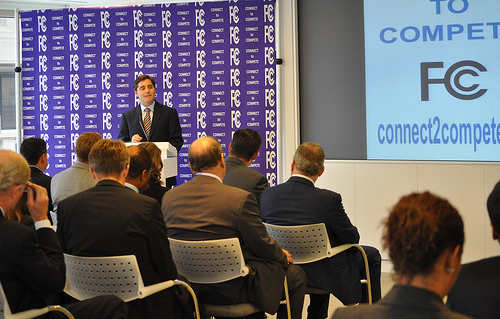By Craig Fugate, Administrator of the Federal Emergency Management Agency and Julius Genachowski, Chairman of the Federal Communications Commission.
Ask anyone who has lived through a significant disaster what that experience was like and – without a doubt – one of the things some people are likely to recall is how difficult it was to communicate from their mobile phones with friends, family and emergency services like 911 in the immediate aftermath.
Many of us were reminded of this last month, when both a 5.8 magnitude earthquake and Hurricane Irene struck parts of the East Coast. People immediately reached for their phones to call loved ones or 911. Unfortunately, in some cases, loss of power made communication difficult.
The FCC and FEMA are doing everything we can to empower the public to be prepared for all emergencies (you can visit Ready.gov or Listo.gov to learn more). But one of the lessons learned from that August earthquake was that we can do more to educate the public about the most effective ways to communicate before, during and after a disaster.

Today, we are pleased to release a set of new, easy-to-follow tips to help all Americans prepare their homes and mobile phones for a disaster. These tips are practical things everyone can do to better preserve the ability to communicate effectively during – and immediately after – a disaster.
While we don’t have control over when or where the next disaster will strike, we do have control over what we do to prepare. Check out these tips and please, take one more step and share it with your networks. Use Twitter, Facebook, email or a good old-fashioned phone call to help us spread the word – and help more Americans get ready before the next disaster strikes.
Read more »








